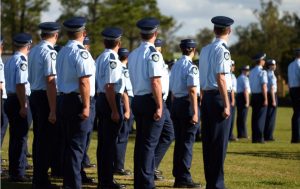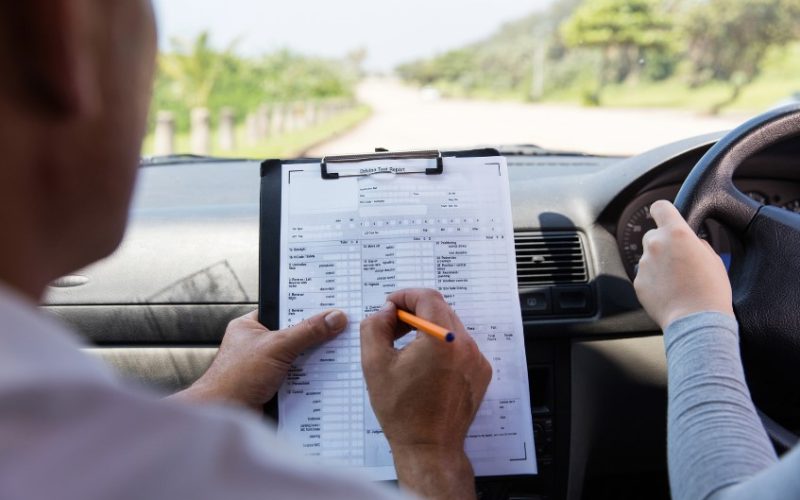Introduction
Becoming a police officer in Ontario is a rigorous and competitive process that requires a combination of physical fitness, mental aptitude, and personal character traits. It is a highly respected and rewarding career that offers job security, competitive salaries, and opportunities for advancement. However, the process of becoming a police officer in Ontario can be complex and requires a clear understanding of the steps involved.
In this guide, we will explore the requirements, training, and application process for becoming a police officer in Ontario, providing you with the knowledge and resources you need to pursue a career in law enforcement.
How to Become a Police Officer in Ontario?
To become a police officer in Ontario, there are several steps you need to take.
First, ensure that you meet the minimum requirements necessary to go through the selection process, including a background check. This must be completed before you can move forward with taking the tests or applying for currently open positions.
Once you have met the minimum requirements, you can then apply for the police service in Ontario. The selection process can range from 5 to 10 stages, depending on the police service, so it is important to check with the police service you intend to apply to ensure you are familiar with and prepared for their process.
As part of the selection process, you will need to attend training at the Ontario Police College in Aylmer, Ontario, and pass the program. In addition, you may need to pass the Physical Readiness Evaluation for Police (PREP) test and the Shuttle Run, depending on the police service. Shift schedules vary in each division, and are either 8, 10, or 12-hour shifts.
Meet the Minimum Requirements

To become a police officer in Ontario, several requirements must be met. According to the Ontario Provincial Police, applicants must be committed to working collaboratively with communities to prevent crime and improve public safety.
Additionally, most police agencies in Ontario require applicants to meet the following criteria:
- Be at least 18 years old
- Be fluent in English
- Have a good driving record
- Be in excellent health
- Have good character
- The equivalent of a Canadian high school diploma
- Be a citizen or permanent resident of Canada
- Hold a valid current standard first aid/CPR “C” certification
In addition, candidates for Ontario’s college police programs must possess an Ontario Secondary School Diploma (OSSD) or an equivalent with a credit in English at the 12th-grade level. Additional requirements may vary by institution, and physical and mental competency testing, First Aid training, and a Police Record Check could also be required.
Apply to a Police Service
Once you have met the eligibility requirements and completed the necessary education and training, you can apply for police service in Ontario. There are several police services in Ontario, including the Ontario Provincial Police (OPP) and various municipal police services.
Choosing the right police service to apply to in Ontario can be a crucial step in your law enforcement career.
Here are some factors to consider when selecting a police service:
- Location: Consider the location of the police service and whether you are willing to relocate if necessary. Some police services in Ontario may require officers to live within a certain distance of their service area.
- Size: Consider the size of the police service and the number of officers they employ. Larger police services may offer more opportunities for advancement, but smaller services may provide a more close-knit community and a greater sense of camaraderie.
- Culture: Consider the culture of the police service and whether it aligns with your values and beliefs. Each police service has its own unique culture and approach to law enforcement, so it’s important to research its mission and values before applying.
- Specializations: Consider any specializations or units within the police service that you may be interested in.
- Recruitment process: Consider the recruitment process of each police service and whether it aligns with your strengths and experience. Some police services may place more emphasis on physical fitness, while others may focus more on written testing and interviews.
- Salary and benefits: Consider the minimum wage, salary, and benefits offered by each police service, as well as any opportunities for overtime or additional pay.
In addition to these factors, it’s important to research each police service thoroughly and speak with current or former officers to gain a better understanding of the day-to-day duties and challenges of the job. By considering these factors and doing your due diligence, you can select the police service that is the best fit for your career goals and personal values.
Complete the Application Process

To become a police officer in Ontario, Canada, several steps must be completed. According to the Constable Selection System of the Ontario Association of Chiefs of Police, all applicants who have a high-school diploma or equivalency can apply for a police constable position. The selection process can range from 5 to 10 stages and may vary depending on the police service you intend to apply to.
The Ontario Police College in Aylmer, Ontario provides initial training for new police recruits, with additional training through the Provincial Police Academy at OPP General Headquarters in Orillia.
The application process for the Ontario Provincial Police involves submitting an application and supporting documentation online. Required documentation includes a completed Police Officer Application Form, resume and cover letter, completed OACP Consent and Release of Liability Form, and high school and post-secondary transcripts.
Overall, the process of becoming a police officer in Ontario involves a combination of education, training, and selection stages.
Attend Police Training Program
The police training program is a combination of classroom training and field training. The classroom component usually lasts for 8 weeks, while the field component lasts for 6 weeks.
To be accepted into a college police program in Ontario, applicants must have an Ontario Secondary School Diploma (OSSD) or an equivalent diploma that includes a grade 12 English credit. Additional requirements will vary by institution.
The Ontario Police College (OPC) trains police recruits and offers advanced training for experienced police officers and civilian employees of police services. The basic constable training program is delivered by the OPC where new police hires have been trained since 1962.
The Ontario Provincial Police (OPP), which provides police services in some municipalities plus police service on the province’s highways, trails, and waterways, recruits receive additional training through the Provincial Police Academy, located in the Orillia OPP General Headquarters.
Complete the Field Training

In Ontario, police officers undergo extensive training, both in the classroom and in the field. For recruits, training begins with the Ontario Police College in Aylmer, Ontario which offers a Basic Constable Training program.
The duration of this part is around 6 months, depending on how well your progress. During field training, new officers receive practical, hands-on experience working alongside experienced officers. This period of training can last several months and is designed to give new officers the skills and experience they need to perform their duties safely and effectively.
Conclusion
In conclusion, becoming a police officer in Ontario is a challenging but rewarding career path that requires dedication, commitment, and hard work. The application process is rigorous and requires meeting certain requirements such as education, physical fitness, and character traits. The training process is intense but provides the necessary skills and knowledge needed to serve and protect the community. Once hired, police officers in Ontario have the opportunity for career advancement and job security.
FAQs on how to become a police Officer in Ontario
1. What qualifications do you need to be a police officer in Ontario?
To become a Police officer in Ontario, a person should possess Canadian citizenship or be a Canadian permanent resident, and also a minimum age requirement of 18 years old. Be physically and intellectually capable of performing the duties of the post, taking into account his or her safety and the protection of others.
2. How much do police get paid in Ontario?
The salary for the police officer ranges from an hourly wage of $30.05-$57.69 with a median wage of $46.15. The yearly income range for police officers in Ontario is $56,115 to 117,115, with $97,115 as the median.
3. How long is the police academy in Ontario?
The 12-week OPC training course aims to satisfy the demands of Ontario’s various communities while preparing newly hired police officers to carry out their jobs safely and effectively.
4. Is police training paid in Ontario?
The 12-week OPC training course aims to satisfy the demands of Ontario’s various communities while preparing newly hired police officers to carry out their jobs safely and effectively.










